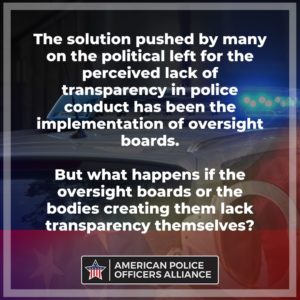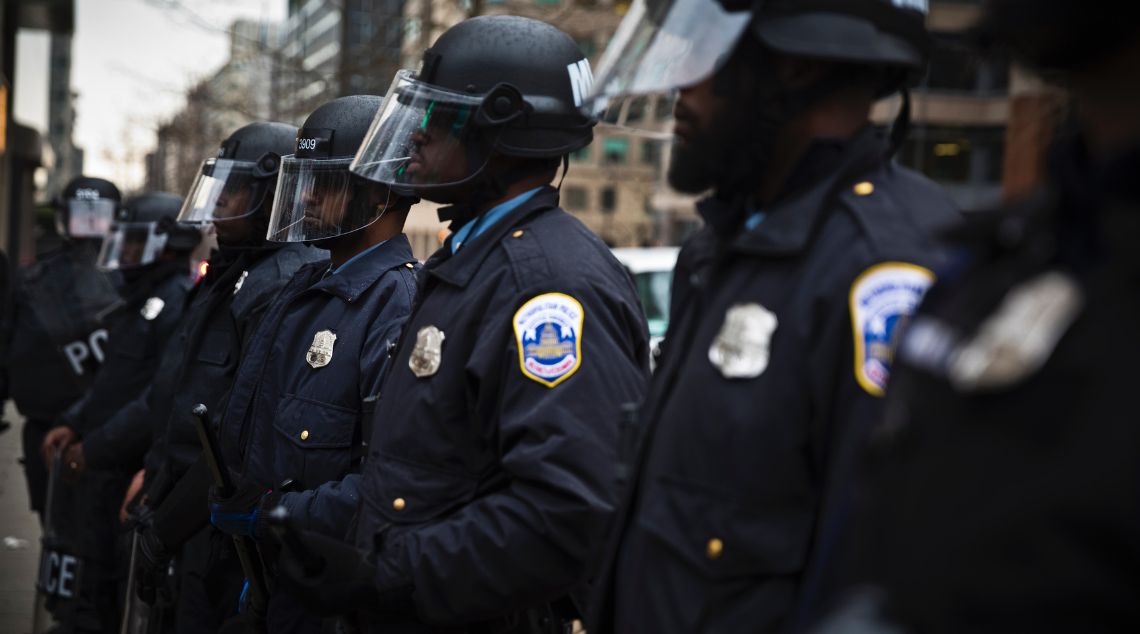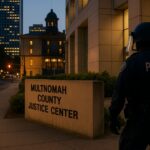Over the last two years we have seen the growth of a movement calling for accountability in law enforcement. The solution pushed by many on the political left for the perceived lack of transparency in police conduct has been the implementation of police oversight boards. In theory, oversight boards (commonly referred to as civilian oversight or review boards, as well) are made up of neutral parties that would help oversee police disciplinary actions and be an independent body that is ready to investigate complaints against the police department.
But what happens if the oversight boards lack transparency themselves?
This question was raised in Laramie, Wyoming after private conversations between members of the City Council were discovered during the process to create an oversight board in that city.

On March 23rd, the Laramie City Council convened a public hearing to determine whether the establishment of a police oversight board would be further explored. To be clear, the board would not be established with a confirmation vote, but rather the idea would be further investigated.
At the public hearing, the council voted in favor of continuing the process, with a vote of 5-4. However, once recess was called, members conducted private phone conversations trying to alter the outcome, according to a report by Wyoming News.
“…Fred Schmechel called councilor Pat Gabriel and influenced him to reconsider his vote surrounding a civilian oversight group for the Laramie Police Department…After the council returned to session and discussed other topics, Gabriel announced he wanted to reconsider his vote.”
Ultimately, Councilor Gabriel changed his vote and the motion failed.
Councilor Schmechel expressed concerns that the establishment of a civilian oversight board in Laramie would lead to resignations at the police department. This assertion was denied by Chief Dale Stalder, but the chief did note his opposition to the proposed board citing “questions of legality,” employee privacy, and existing oversight mechanisms already in place.
Residents of Laramie, such as Bill Harris were upset over the revelations of the private phone call. “How can the public trust the City Council as the provider of oversight for the police department when council members aren’t communicating transparently and accountably,” commented Harris.
Ultimately, the Laramie City Council has shelved this idea but is continuing to explore the establishment of a community relations group connecting residents with the police department. What this case highlights, however, is the back-room nature of the politics surrounding police oversight boards. Whether for or against, it is likely that local politics and the agendas of individual politicians are often advanced before the common interest, raising the question of whether they can ever truly be “transparent.”
Police oversight has a necessary role in public service. However, as an organization we have often highlighted the shortcomings of these boards when public service takes a backseat to political or personal agendas. This very possibility has led one man from resigning his position on the Civilian Police Oversight Agency in Albuquerque, New Mexico.
Image Credit: Photo by Adam Bezer on Unsplash










